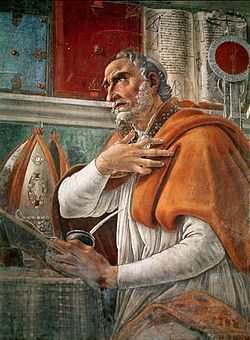XXI SUNDAY IN ORDINARY TIME - Lk 13:22-30; Is 66:18-21
In need of salvation
In spite of many different beliefs, traditions and religions, at all times and in all generations, people have had a feeling of inadequacy, shortcoming and failure, which led them to search for salvation. We are in need of wholeness and in need of life, which can only be brought to us by salvation. And the question comes: Is it easy to be saved? Will salvation be given to all?
That was the question which someone asked to Jesus: "Sir, will there be only a few saved?" (Lk 13:23). Jesus makes it clear that salvation is not guaranteed and that the way to salvation is not an easy one. We must struggle to enter through the "narrow door", and many will not succeed.
When we speak of salvation, we speak of something that is bestowed on us by God's grace and so of something that we cannot obtain on our own. Salvation is a gift coming from God's mercy and love. However, this gift demands a concerted effort on our side. It is not enough just to open our arms and be ready to receive it. The gift of salvation is like the talents entrusted to the servants; and like good servants of the Lord, we must work hard to make good use of those talents (Mt 25:14-30).
Never take God for granted
One thing is sure, we can never take God for granted. Indeed, he is a merciful and loving father, but he is as well the judge who decides in all fairness and gives each one according to what he deserves. If we take God for a ride, then we will knock a the gate of heaven, only to be told that we do not belong there; and we will be forced to go away.
Jesus warned the Jews that, in spite of belonging to the chosen people, they might be left outside, while others coming "from east and west, from north and south, will come to take their places at the feast in the kingdom of God." (Lk 13:29).
Salvation is offered to all
Salvation is a serious matter that must be taken seriously. On his side, God is ready to offer salvation to all. People will come from everywhere. Salvation is not a privilege of just a few, much less a privilege of a certain group based on race or tribe. Jesus took this universalist approach from Isaiah, who at the end of his book wrote: "I am coming to gather the nations of every language. They shall come to witness my glory." "And of some of them I will make priests and Levites, says the Lord." (Is 66:18,21).
Feeling threatened by the surrounding cultures and being dominated by foreign powers, the Jews closed in themselves, forgetting that they had been chosen to be a beacon of light giving guidance to all in their search for God. They forgot the universalism of Isaiah, to close themselves in their narrow minded nationalism.
God offers salvation to all and all who are ready to accept his gift and work together with him, will manage to enter through the narrow door and see the glory of God's kingdom.

